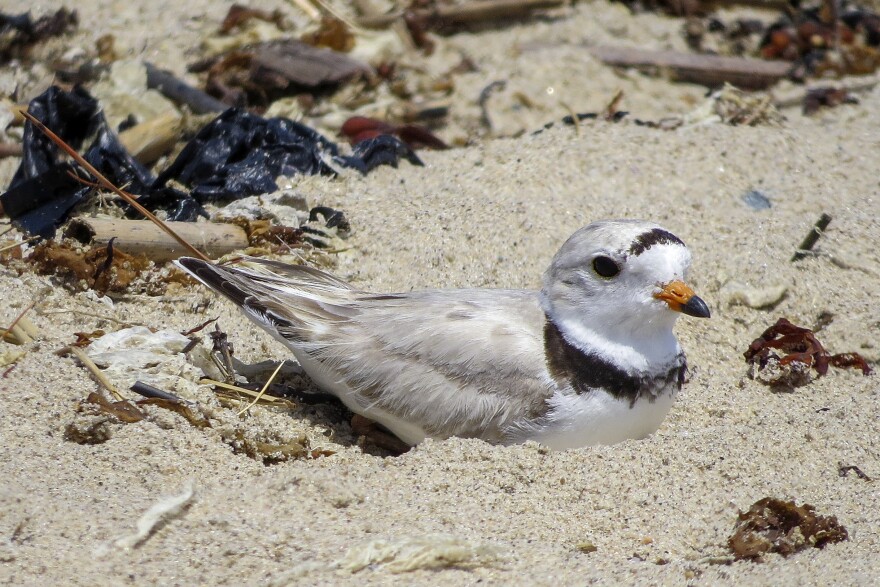This summer, local conservationists are studying whether decreasing human disturbance at two Connecticut beaches can save the lives of certain endangered birds and their chicks. A months-long effort will am to confirm ways to further protect local piping plovers, American oystercatchers and least terns.
Many vulnerable birds lay their eggs along the shoreline at Milford Point and Long Beach every year. So Audubon Connecticut has been educating beachgoers to avoid certain areas that may have nests.
When people and dogs get too close to nests, the adult birds fly away in fear, said Beth Amendola, the group’s coastal program coordinator.
“And what this does is it leaves the eggs and the chicks prone to being exposed to either cold, windy temperatures, very hot sun, or it allows other predators to move in and eat the eggs or the chicks,” she said.
The state classifies piping plovers, American oystercatchers and least terns as “threatened.” Audubon says there were only 60 nesting pairs of piping plovers in the state last year, and the bird is listed as federally endangered.
To protect the birds, Audubon recommends that beachgoers walk in the wet sand, stay away from roped-off areas and keep pets on a leash if they’re permitted there.
Dogs are not permitted at Long Beach during the nesting season, and they are not allowed at Milford Point at any time.
Amendola said so far they’ve observed that people are responding well to direction.





